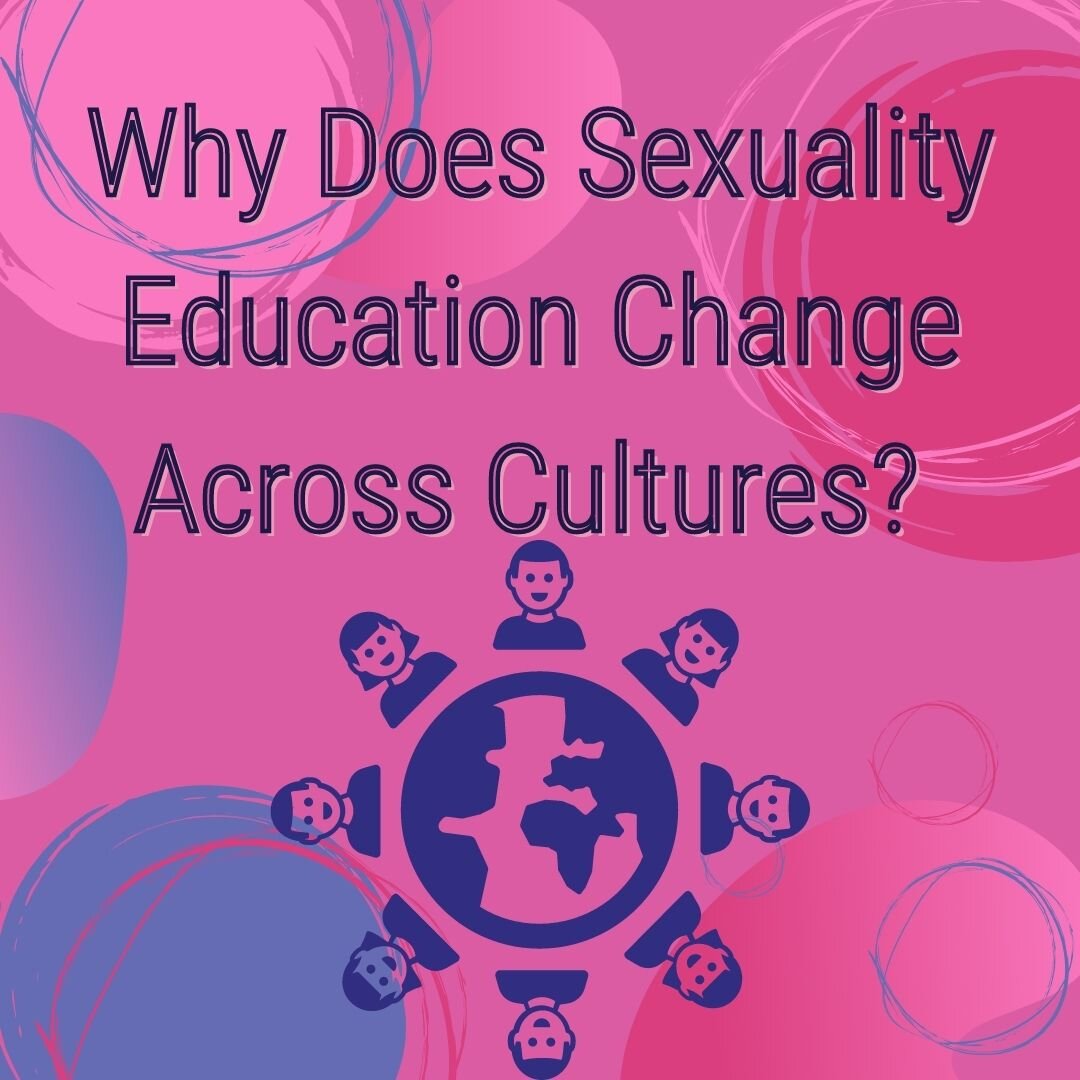Whether we realize it or not, culture plays an extremely important role in how we learn and relate to our sexuality. Take a minute to reflect on how your environment has shaped your beliefs and attitudes towards sexuality.
Culture & Sexuality
Social norms, history, religion, and gender roles make up the culture of a place. Since culture influences the way in which we perceive ourselves and the world, it makes sense that culture would also influence the way in which sexuality education is taught. While biology is crucial to our sexual development, sexual education has a major influence on how children view sexuality as adults.
So, what are the factors that change sexuality education across cultures?
Social Norms
Social norms can greatly impact the sexual education curriculum. Things like the age of sexual consent, views on homosexuality, masturbation, and other sexual behaviors can dictate what is included and excluded in the sexual education curriculum.
Religion
The adherence to a specific religious moral code can mold a sex-ed curriculum. For example, religions that view marriage as a sacrament may adhere to sexual education that discourages sex before marriage or abstinence-only based curriculums. More liberal cultures may discuss non-monogamous sex and take a more objective stance on pre-marital sex.
Gender Roles
The roles men and women play in a culture immensely impact sexual education. In patriarchal societies, there may be a bigger focus on men’s sexuality and sexual pleasure than women. In extremely conservative cultures, women may even be excluded from this type of education.
Media
The way in which sex is portrayed in tv shows movies, and magazines in a particular culture can uphold or challenge social norms surrounding sex.
Let’s take a look at different sex-ed programs around the world!
Indonesia
Sex ed is not mandatory in Indonesia. Pre-marital sex and LGBTQ sex are not encouraged in schools unless an NGO is involved. However, Rutgers, a Dutch NGO, challenges this by running sex education programs in seven areas in Indonesia, teaching 12-14 year old’s about sex and relationships.
Uganda
In Kampala, Uganda, soccer is interestingly used as a method to teach sex ed in a country where formal sex education isn’t common. The goal is to help them think about safe sex as teamwork and something that should be practiced by both girls and boys.
“The international agency Soccer Without Borders has been working with child refugees in Uganda since 2008. It uses football as a vehicle for educational development all over the world, helping children of all ages to learn English and preparing them for school.” (The Guardian).
The Netherlands
The Netherlands takes a very liberal approach to sex education by teaching lessons very early on.
“Spring Fever Week” is a national initiative to educate primary students about love, sex, and relationships on a daily basis.
“During Spring Fever Week, SRE is about more than simply explaining how reproduction works. The teachers discuss how to express feelings and set boundaries, but also sexual diversity, self-image and online perils. Each theme is taught in an age-appropriate way.” (The Guardian.)
These are just a few examples of how sex education looks across cultures. Because of increasing global connectivity, we’re seeing NGOs intervene in various countries to provide accessible, comprehensive sex education to children all over the world. The result? A more educated, sex positive world!




